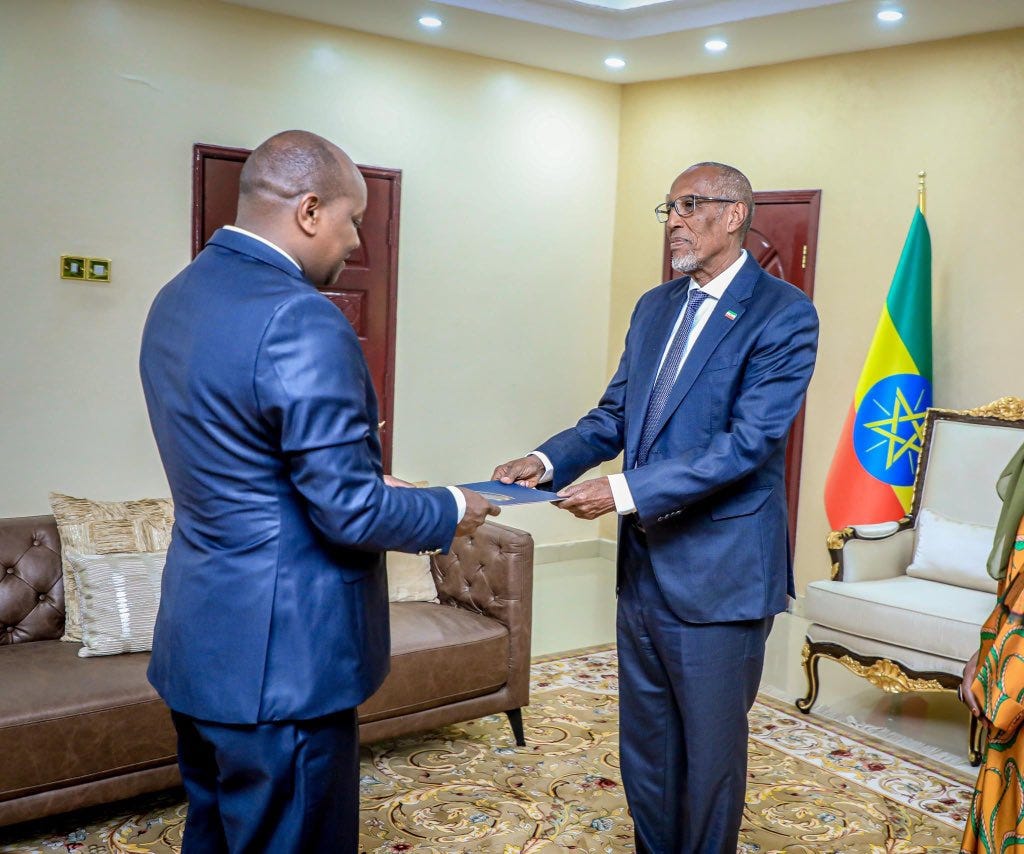Rising Tensions in the Horn of Africa: Ethiopia and Egypt at Odds
New BRICS members Ethiopia and Egypt are facing off over the Somalia-Somaliland dispute, which could have a knock-on effect on the stability of the Horn of Africa, as well as beyond.
In recent months, the Horn of Africa has become a hotbed of diplomatic tensions and strategic maneuvering, with Ethiopia and Egypt—both new members of the BRICS group in 2024—finding themselves on opposing sides of a complex regional dispute. The situation has escalated following Ethiopia's controversial agreement with the breakaway region of Somaliland, sparking a chain reaction of diplomatic fallout and military posturing that threatens to destabilize the region.
The Somaliland Deal: A Catalyst for Conflict
The current crisis began in January 2024 when Ethiopia signed a memorandum of understanding with Somaliland, a self-declared independent state that Somalia considers part of its territory. The deal would grant Ethiopia access to 20 km of coastline in exchange for potential recognition of Somaliland's independence. This move immediately drew sharp criticism from Somalia, which viewed it as a violation of its sovereignty.
Somalia's response was swift and severe. It expelled the Ethiopian ambassador, ordered to close the Ethiopian consulates in Somaliland and Puntland, and even threatened to remove thousands of Ethiopian troops stationed in Somalia to combat Islamist insurgents. The Somali government has consistently refused to accept the deal, with President Hassan Sheikh Mohamud stating unequivocally, "We will not negotiate with Ethiopia on any issue until it recognizes our full sovereignty."
Egypt Enters the Fray
As tensions between Somalia and Ethiopia simmered, Egypt saw an opportunity to strengthen its position in the region. On August 28, 2024, Egypt delivered its first military aid to Somalia in over four decades, a move that has been interpreted as a direct challenge to Ethiopia's regional influence. This action has further strained the already tense relationship between Cairo and Addis Ababa, which have been at odds for years over Ethiopia's construction of the Grand Ethiopian Renaissance Dam (GERD) on the Blue Nile.
The GERD, now fully operational and significantly increasing its power output, has long been a point of contention between the two nations. Egypt fears the dam could jeopardize its access to vital Nile waters, while Ethiopia views it as crucial for its development and electrification efforts. The recent announcement that the GERD has more than doubled its output to 1,550 megawatts has likely heightened Egypt's concerns and may have contributed to its decision to support Somalia militarily.
Diplomatic Efforts Amid Rising Tensions
Despite the escalating situation, there have been attempts at diplomatic resolution. Turkey has taken on a mediator role, hosting two rounds of talks between Somalia and Ethiopia in Ankara. While these discussions have not yet yielded a breakthrough, Turkish Foreign Minister Hakan Fidan reported "convergence on some major principles" and announced plans for a third round of negotiations on September 17, 2024.
However, the path to resolution remains fraught with challenges. Somalia has taken a hard line, with President Mohamud refusing to negotiate until Ethiopia recognizes Somali sovereignty. Meanwhile, Ethiopia has moved forward with its plans in Somaliland, recently appointing a new ambassador to the region, signaling its commitment to the controversial agreement.
The BRICS Factor
As newly inducted members of the BRICS group, both Ethiopia and Egypt now find themselves in a unique position. Their shared membership in this influential bloc of emerging economies could potentially provide a new avenue for dialogue and cooperation. The international community is watching closely to see if their BRICS association might help temper tensions and foster a more collaborative approach to regional issues.
A Region on Edge
The situation in the Horn of Africa remains precarious. Somalia's recent warning to suspend Ethiopian Airlines flights to its territory and Somaliland's strong objection to the deployment of Egyptian forces in Somalia underscore the volatile nature of the current state of affairs. The international community, including other BRICS members, may need to play a more active role in facilitating dialogue and preventing further escalation.
As these events unfold, the world watches with bated breath, hoping that diplomacy will prevail and that the shared interests of Ethiopia and Egypt as BRICS members might contribute to a peaceful resolution of this complex regional dispute. The coming months will be crucial in determining whether the Horn of Africa can step back from the brink of conflict and find a path towards stability and cooperation.







Despite being in BRICS+, Egypt remains a vassal state, totally controlled by the Empire, suffice to observe its treacherous role in the Gaza genocide.
Ethiopia is great landlocked country, it is only natural that it have free access to the sea. However, the way to achieve this is not by promoting separatism in Somalia, which itself has suffered a lot from the Empire.
As you correctly mention serious diplomatic efforts by Russia and China are needed to resolve the problem between Ethiopia and Somalia, while preserving the sovereignty and territorial integrity of Somalia.
As for the Egyptian military, like all Western trained militaries is impotent, and is only effective in subjugating Egyptians to the regime and the will of the Empire
The world should not allow soldiers and searches to hide the state of a country.